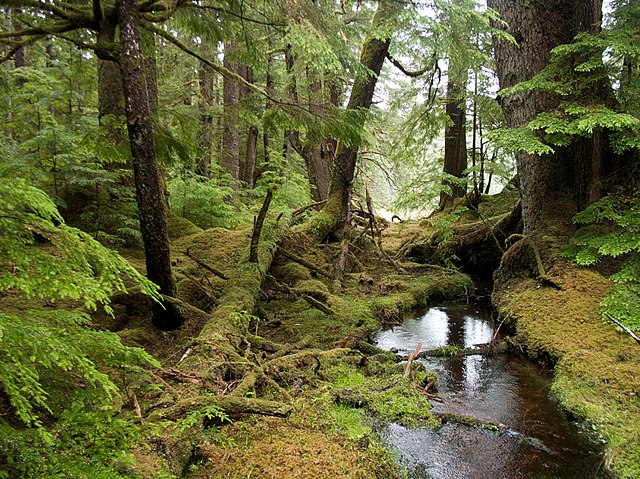Haida Gwaii, also known as the Queen Charlotte Islands, is an archipelago located between 55–125 km (34–78 mi) off the northern Pacific coast of Canada. The islands are separated from the mainland to the east by the shallow Hecate Strait. Queen Charlotte Sound lies to the south, with Vancouver Island beyond. To the north, the disputed Dixon Entrance separates Haida Gwaii from the Alexander Archipelago in the U.S. state of Alaska.
Gwaii Haanas National Park Reserve
Western hemlock forest on Moresby Island
Houses and totem poles, Skidegate, 26 July 1878 (George Mercer Dawson, Geological Survey of Canada, NAC-PA-37756)
Totem pole in World Museum, Liverpool
Haida is the language of the Haida people, spoken in the Haida Gwaii archipelago off the coast of Canada and on Prince of Wales Island in Alaska. An endangered language, Haida currently has 24 native speakers, though revitalization efforts are underway. At the time of the European arrival at Haida Gwaii in 1774, it is estimated that Haida speakers numbered about 15,000. Epidemics soon led to a drastic reduction in the Haida population, which became limited to three villages: Masset, Skidegate, and Hydaburg. Positive attitudes towards assimilation combined with the ban on speaking Haida in residential schools led to a sharp decline in the use of the Haida language among the Haida people, and today almost all ethnic Haida use English to communicate.
A woman hangs posters with the Haida words for various body parts
Haida text on Old Massett welcome sign






